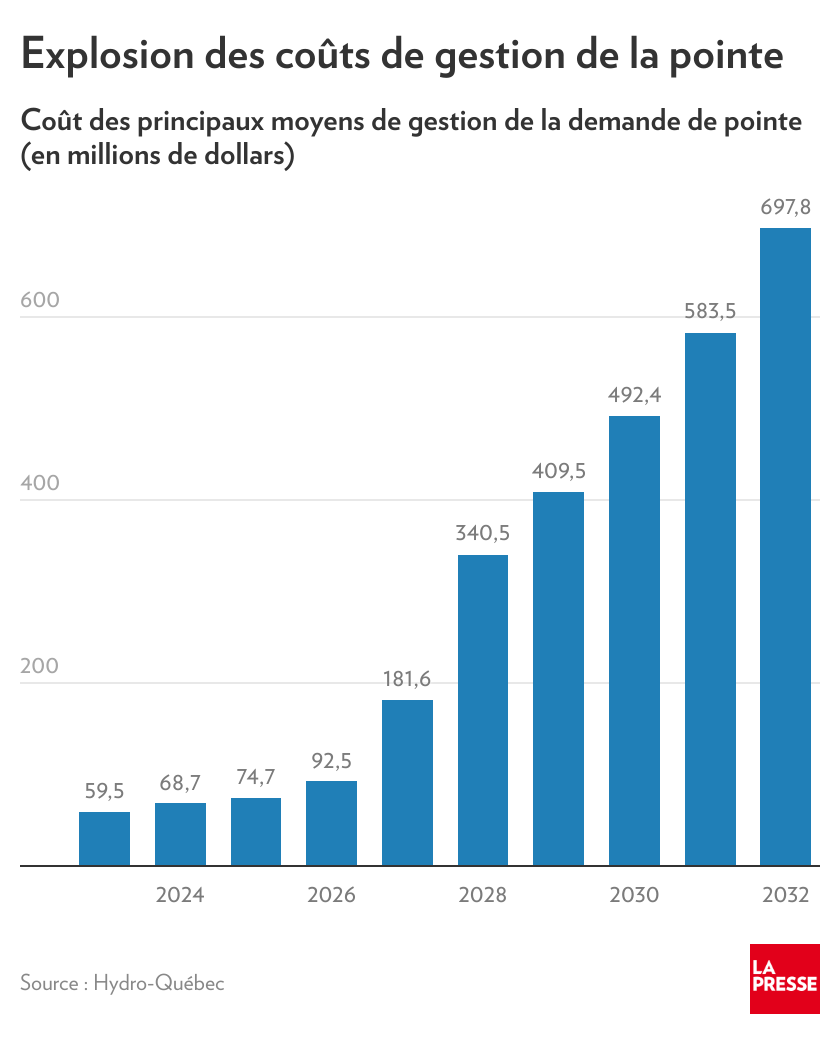Waiting until nightfall to run the dishwasher won’t be enough to help Hydro-Quebec manage peak winter demand, which will explode in volume and cost over the next few years.
The state company paid $59.5 million in 2023 for its various tools to reduce consumption during peak winter periods. That annual cost will rise to nearly $700 million in 2032, Hydro-Quebec predicts.

In fact, it will cost more, estimates Jean-Pierre Vignier, an analyst at Regrouping Environmental Organizations in Energy. “This does not include the cost of Hilo, for example,” he points out.
As confirmed by Hydro-Quebec. Its spokeswoman, Cenedrix Bouchard, said Hilo is not included in this forecast, any more than other peak management tools such as dynamic pricing (winter credit and flex rate).
Hilo is the most expensive utility Hydro-Quebec uses to shift power consumption during the few hours of the year when its grid is used most heavily, but its actual cost is kept secret.
For the winter that just ended, 20,000 customers of the Hilo subsidiary received $2.8 million in rewards for moving their electricity consumption, as well as benefited from financial assistance for the purchase and installation of smart thermostats.

High demand
The cost of other means available to the electricity distributor ranges from 9.7 cents per kilowatt-hour for purchases from neighboring networks (average cost winter 2023), up to 61 cents per kilowatt-hour for compensation paid to companies that reduce their consumption during a critical time. hours.
Hydro-Quebec can also use the Bécancour thermal power plant, which it used for 23 hours on February 3rd and 4th, if necessary, at an unspecified cost, but linked to the cost of fuel.
The high cost of providing peak electricity, even if it only lasts a few hours a year, is a growing problem.
The relatively mild winter that has just ended gives an idea of the challenges the Hydro-Québec system will have to contend with in the coming years.
And the historical record for electricity consumption, which dates back to the previous winter, was broken, despite the moderate temperatures. The power grid had to supply 2,000 megawatts more than it did in the winter of 2021-2022.
The cost of supplying energy to meet peak demand increases each year, but from 2026 it will increase exponentially. According to Hydro-Québec, the end of surpluses and the need to find new supplies (wind farms or new power plants) explain the explosion in costs.
The agreement that Hydro-Québec signed with Énergir to convert natural gas heating to dual power rather than all-electric aims to mitigate the growing impact of peak demand on the electricity grid.
read more
-
- Peak 2021-22
- 40,537 MW, +2,000 MW compared to the previous year
Source: Hydro-Quebec
- Peak 2022-23
- 42,700 megawatts + 2,000 megawatts
Source: Hydro-Quebec

“Music guru. Incurable web practitioner. Thinker. Lifelong zombie junkie. Tv buff. Typical organizer. Evil beer scholar.”








